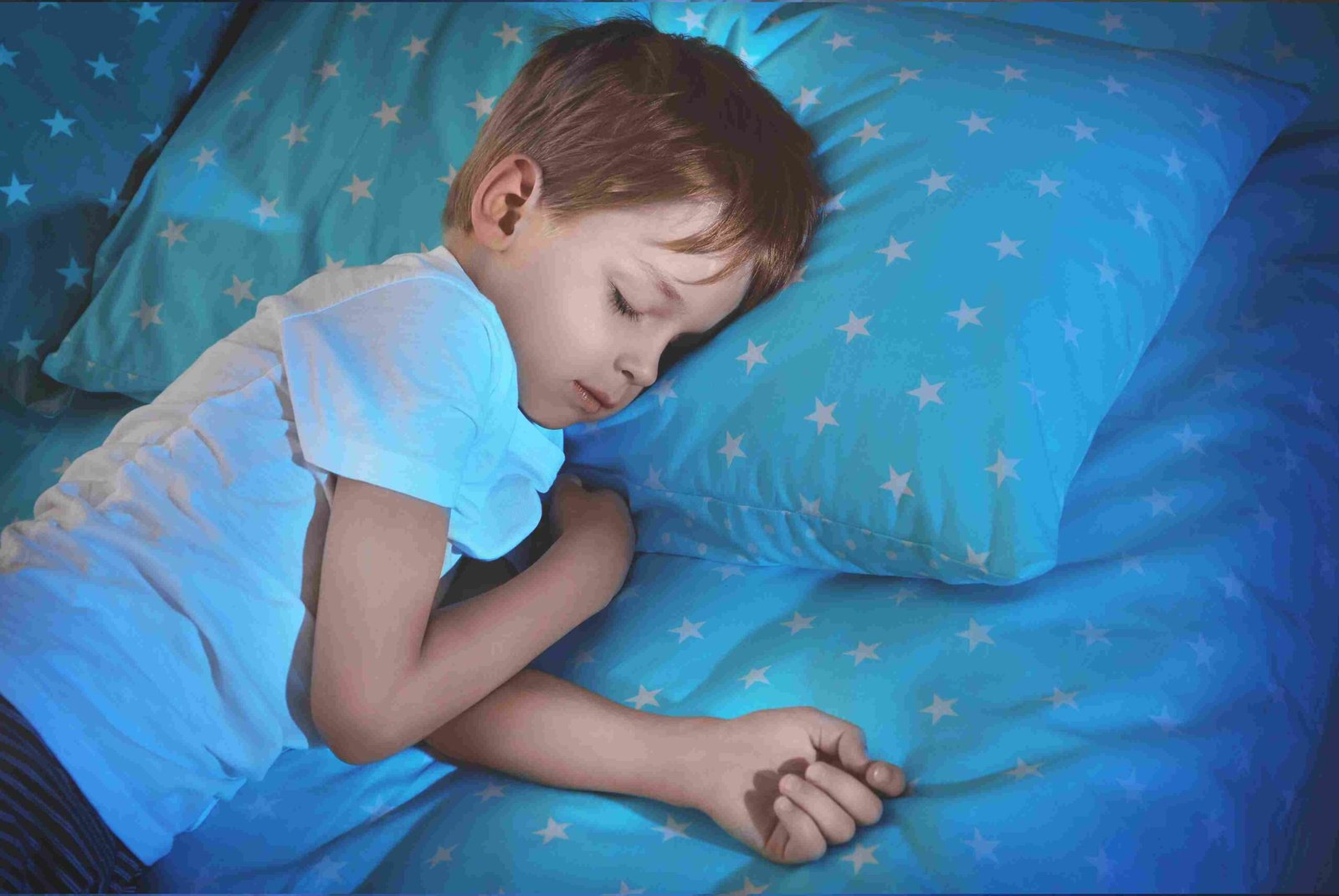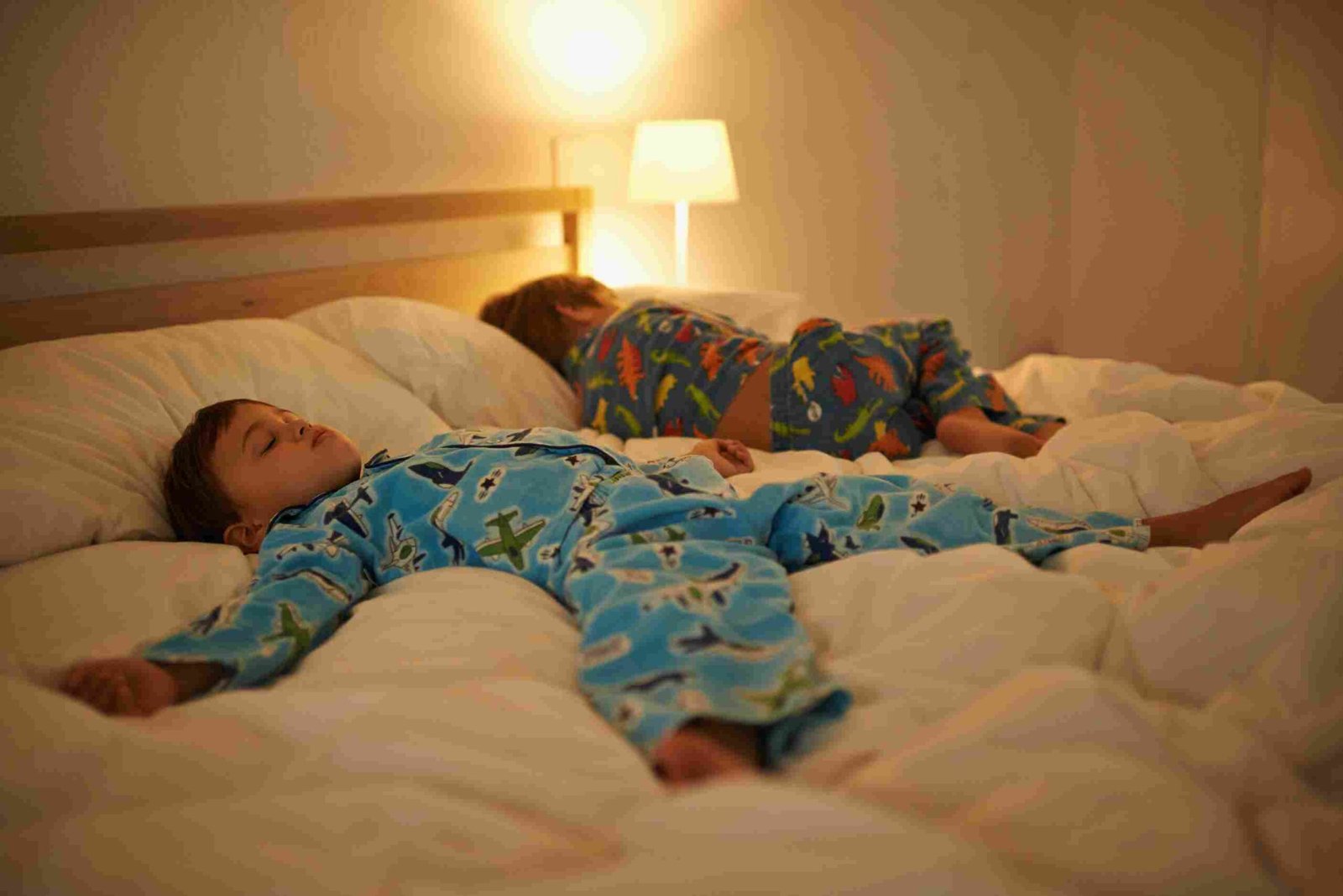Bedwetting in Children

Bedwetting, or Nocturnal Enuresis, is a common concern among parents and caregivers, affecting a significant number of children worldwide. While it is a natural part of a child’s development, persistent bedwetting can be stressful for both the child and their family. Our comprehensive bedwetting solutions are designed to provide support, guidance, and effective strategies to help children overcome this common issue.
Bedwetting involves the involuntary release of urine during sleep. This prevalent condition can be linked to various factors, including genetics, delayed maturation of the central nervous system controlling bladder function, hormonal imbalances, and emotional stressors. An empathetic and comprehensive approach is crucial when addressing bedwetting, understanding its underlying causes. For effective guidance on dealing with bedwetting issues in children, seeking assistance from renowned experts like Dr. Kaustubh Abnave, recognized as one of the Best Doctors for Bedwetting in Thane, can provide valuable support to parents.
What Is The Prevalence Of Bedwetting In School-Age Children & Teenagers?
Children who have undergone toilet training often experience occasional “accidents.” Approximately 20% of 5-year-olds encounter issues with bedwetting, and up to 10% continue to do so at the age of 7. By the late teenage years, the prevalence of bedwetting is estimated to be between 1% and 3% among children. Nocturnal enuresis is more prevalent in boys, occurring 2 to 3 times more frequently than in girls.
There Are Two Types Of Nocturnal Enuresis-
- Primary Enuresis: In this case, a child has never experienced bladder control at night and consistently wets the bed.
- Secondary Enuresis: This occurs when a child previously had bladder control at night for a minimum of 6 months but has regressed and now faces bedwetting again.
Primary enuresis is more prevalent, while secondary enuresis in older children or teenagers necessitates evaluation by a medical professional, such as Dr. Kaustubh Abnave, a renowned Pediatric Neurologist in Thane in Thane. Bedwetting in this age group could indicate underlying health issues like urinary tract infections, neurological problems, stress, or related concerns. Seeking medical attention from top paediatric bedwetting treatment doctor in Thane, like Dr. Kaustubh Abnave, is advised for a thorough assessment and effective management.
Symptoms Of Bedwetting in Children
Bedwetting in children may manifest through signs like frequent wetting of the bed after age 5, sudden changes in mood or behavior, excessive thirst, and reluctance to participate in overnight activities. Understanding these signs is crucial for timely support and intervention.
Parents, if you observe signs of bedwetting in your child, don’t worry. Consult Dr. Kaustubh Abnave for the Best Bedwetting Treatment For Children In Thane.
Is Bedwetting Linked To Medical Conditions?
- Bedwetting may indicate an underlying medical condition if it recurs in a previously toilet-trained person after at least six months of dry nights.
- Signs of a potential issue include changes in daytime urination frequency, pain or discomfort while urinating, a reduced urine stream, alterations in urine color, shifts in mood, and a lack of daytime bowel movements.
If these symptoms accompany bedwetting, it’s advisable to consult a healthcare professional for a thorough evaluation.
Causes Of Bedwetting In Children
- Delayed Development: Bladder control may be slower to develop in some children.
- Genetic Factors: Bedwetting tendencies can be inherited.
- Small Bladder Capacity: Limited bladder size may contribute to nighttime accidents.
- Hormonal Imbalance: Inadequate antidiuretic hormone (ADH) production can lead to bedwetting.
- Deep Sleep Patterns: Deep sleepers may not respond to bladder signals.
- Urinary Tract Infections (UTIs): Infections can irritate the bladder, causing bedwetting.
- Constipation: Full rectums can pressure the bladder, impacting function.
- Stress and Emotional Factors: Emotional stress or major life changes can trigger bedwetting.
- Overactive Bladder Muscles: Involuntary contractions of bladder muscles may be a factor.
- Sleep Apnea: Breathing issues during sleep can contribute to bedwetting.
- Food and Drink Before Bed: Consuming fluids or certain foods before bedtime can increase bedwetting risk.
- Neurological Issues: Rarely, neurological problems may play a role in bedwetting.
It’s crucial to recognize that bedwetting is a prevalent issue in childhood, typically resolving with time. If persistent or causing significant concern, consulting with a healthcare professional, such as Dr. Kaustubh Abnave, one of the leading Bedwetting Specialist Doctor in Thane, is advisable.
When To See A Doctor
- If your child is 7 or older and still wets the bed, or if they start bed-wetting after being dry for a few months, it’s a good idea to consult expert doctor like Dr Kaustubh Abnave who is known as top Child Neurologist in Thane.
- Also, if your child experiences pain while urinating, is consistently thirsty, has pink or red urine, deals with hard stools, or snores, it’s essential to seek medical advice. These could be signs of an underlying condition that needs attention.

Diagnosis Of Bedwetting In Children
Nocturnal enuresis, or bedwetting, is diagnosed through a physical exam and medical history. Additional tests like urine or blood tests may be conducted to rule out underlying medical causes. If emotional factors are suspected, consulting a mental health professional may be recommended. For specialized guidance and treatment, individuals experiencing bedwetting issues may consider seeking the expertise of Dr. Kaustubh Abnave, a dedicated professional specializing in Bed Wetting Treatment in Thane.
Management & Treatment of Bedwetting in Children
Myth: ADHD is a result of lazy parenting.
Fact: ADHD has a biological basis, and parenting style is not a cause. Parents of children with ADHD often work diligently to support their child’s needs.
Management & Treatment of Bedwetting in Children
Bedwetting, or nocturnal enuresis, is common in children, and effective management involves a multi-faceted approach-
- Medical Evaluation: Ruling out underlying medical issues with professional guidance.
- Behavioral Strategies: Monitoring fluid intake, schedule bathroom breaks, and establish a bedtime routine.
- Alarm Systems: Bedwetting alarms help condition the child to wake up when a full bladder is detected.
- Medications: Medications for bedwetting aim to either reduce nighttime urine production or regulate bladder contractions to enhance control.
- Lifestyle and Dietary Modifications: Promoting a balanced diet, limit caffeine, and encourage regular physical activity.
- Support and Encouragement: Providing emotional support, avoid punishment, and reassure the child.
- Monitoring Progress: Keeping a diary to identify patterns and adjust strategies accordingly.
- Professional Guidance: Consulting healthcare professionals for ongoing support and collaborate with school personnel.
By combining these approaches, parents and caregivers can tailor a comprehensive strategy for managing and treating bedwetting in children. Each child is unique, and a personalized approach that considers both medical and behavioral aspects is key to successful intervention.
Bedwetting, or nocturnal enuresis, is a common concern impacting children’s emotional well-being. While often outgrown, persistent cases may suggest underlying issues. Many children overcome bedwetting naturally, aided by behavioral interventions like fluid management. Emotional support is crucial due to potential shame and embarrassment. Severe cases warrant medical evaluation for underlying conditions. Early intervention and open communication foster a positive outlook, helping children and parents navigate this phase with understanding.
For parents seeking reliable Bedwetting Treatment in Thane, Dr. Kaustubh Abnave is a specialist who offers valuable insights and customized solutions to address this prevalent childhood concern.
Myths & Facts
Myth: Bedwetting is a sign of laziness or rebellion.
Fact: Bedwetting is often a result of developmental factors, genetics, or medical conditions. It is not intentional, and blaming the child can be counterproductive.
Myth: Bedwetting only happens to younger children.
Fact: While it’s more common in younger kids, bedwetting can persist into adolescence. It’s essential to approach the issue with sensitivity and seek appropriate medical guidance.
Myth: Limiting fluid intake will prevent bedwetting.
Fact: Hydration is crucial for overall health, and restricting fluids can be harmful. Instead, focus on proper bathroom habits and identifying potential underlying causes.
Myth: Limiting fluid intake will prevent bedwetting.
Fact: Hydration is crucial for overall health, and restricting fluids can be harmful. Instead, focus on proper bathroom habits and identifying potential underlying causes.
Myth: Bedwetting is always a sign of a serious medical problem.
Fact: While medical conditions can contribute to bedwetting, it’s often a developmental phase. Consulting with a healthcare professional can help rule out any underlying issues and provide guidance on effective management.

